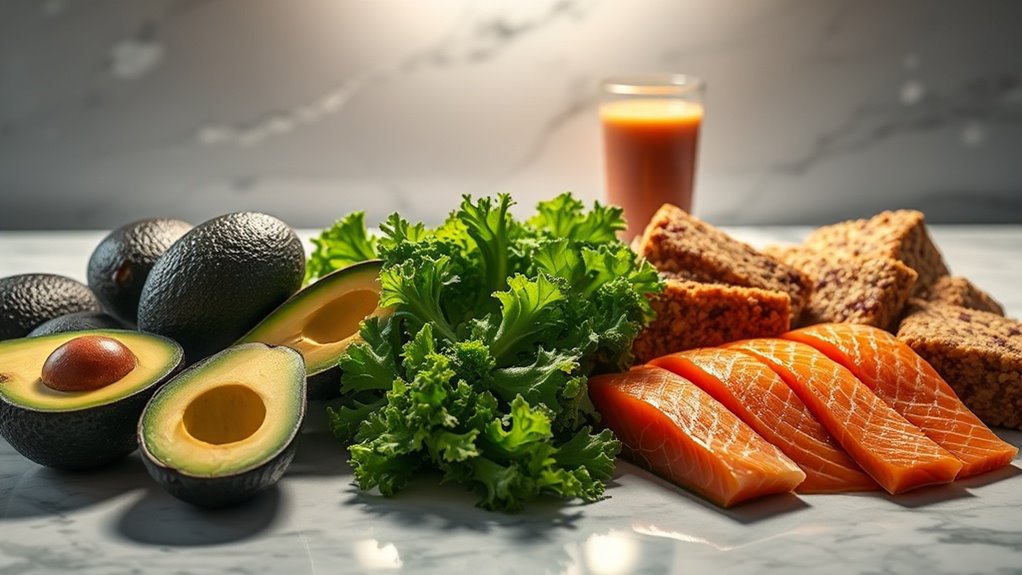You’ve Been Lied To- These ‘Healthy’ Foods Aren’t What They Seem
You’ve likely been led to believe that certain foods are healthy choices, but the reality might surprise you. Granola bars, for instance, can be loaded with sugars, nullifying their perceived benefits. Low-fat products often compensate with artificial ingredients that can be detrimental. What about whole wheat bread? The truth isn’t as straightforward as it seems. To uncover how these seemingly healthy options can sabotage your wellness goals, consider the hidden truths behind your daily food choices.
The Truth About Granola Bars
Granola bars often get labeled as a quick, healthy snack choice, but the reality is more complicated.
Many brands are loaded with sugars and artificial ingredients, making them more akin to candy bars.
These common food myths can mislead you into thinking you’re making a healthy decision.
Always check the labels; you’ll often find that ‘healthy’ isn’t the case with granola bars. Additionally, many of these bars are high in empty calories, which can lead to overeating and disrupt your health goals.
Low-Fat Products: A Sneaky Trap
While you may think you’re making a healthier choice by opting for low-fat products, the reality can be quite different.
Many low-fat items compensate for flavor with added sugars, artificial ingredients, and higher sodium levels. These hidden culprits can negate any calorie savings and lead to weight gain. Understanding the impact of added sugars is crucial for making informed dietary choices.
It’s essential to read labels carefully and consider whole, nutrient-dense options instead.
The Myth of Whole Wheat Bread
Many people believe that choosing whole wheat bread automatically makes their diet healthier.
However, it’s essential to examine the facts:
- Whole wheat bread can still contain added sugars.
- Refined grains are often included in some products.
- Portion sizes can lead to excess calorie consumption.
- Nutritional value varies widely among brands.
- “Whole wheat” doesn’t guarantee fiber-rich content.
Moreover, focusing on ingredient purity can sometimes overshadow the importance of overall nutritional value.
Make informed choices for better health.
Smoothies: More Sugar Than You Think
Smoothies often present themselves as the epitome of health, but they can harbor surprising amounts of sugar. Many pre-packaged options contain added sweeteners and fruit juices, which significantly elevate their sugar content.
Even homemade smoothies, if loaded with ripe fruits and yogurt, can easily exceed recommended daily sugar intake. Always check ingredient labels and consider using low-sugar fruits to maintain balance in your diet. Incorporating more whole foods into your smoothies, such as leafy greens or avocado, can enhance their nutritional profile while reducing overall sugar content.
The Misconception of Reduced-Calorie Snacks
Reduced-calorie snacks often lure consumers with the promise of guilt-free indulgence, but this perception can be misleading. Many contain additives or sugars that mask the calorie reduction.
You might find yourself consuming more than intended, believing these options are healthier. Consider the following:
- Often, lower calories mean higher sugar
- Increased portion sizes
- Misleading marketing
- Added artificial ingredients
- Nutritionally void alternatives
Additionally, reading ingredient labels is crucial to uncover the hidden truths about these snacks.
Salad Dressings: The Hidden Calories
While you might think that loading up on salads guarantees a healthy meal, it’s important to scrutinize what goes on top of those greens.
Many salad dressings, even those labeled as “light” or “organic,” can pack significant calories and sugar. A serving of ranch, for example, can contain 80 calories or more.
Opt for vinaigrettes or use less to keep your salad genuinely healthy.



